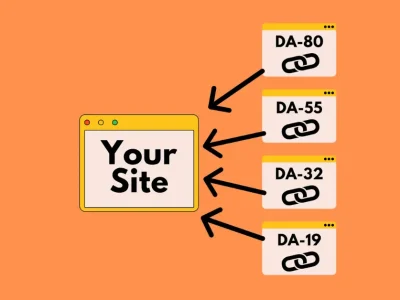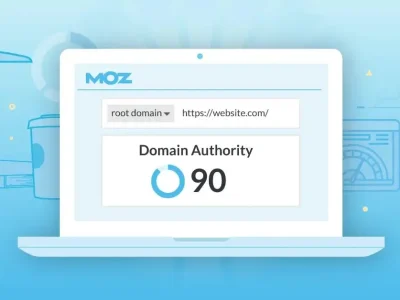In today’s highly competitive online landscape, it’s essential for businesses to find effective strategies to increase their website visibility and attract more qualified traffic. Search engine optimization (SEO) plays a crucial role in achieving these goals, and one of the most important aspects of SEO is backlinking. In this comprehensive guide, we’ll explore everything you need to know about backlinks and their significance in improving your website’s domain authority and search engine rankings.
What Are Backlinks?
Backlinks, also known as inbound or incoming links, are links from one website to another. They serve as a vote of confidence from one site to another, indicating that the linked-to website is valuable, credible, and useful. Search engines, like Google, consider backlinks as a key ranking factor because they provide an indication of a website’s relevance and authority.
The Role of Backlinks in SEO
Backlinks play a vital role in SEO as they demonstrate to search engines that your website has authority, especially if high-authority domains are linking to it. Search engines view backlinks as endorsements or recommendations from other websites, indicating that your content is worth exploring and relevant to specific topics or keywords. This, in turn, can positively impact your website’s search engine rankings and increase its visibility in search engine results pages (SERPs).
Types of Backlinks
Not all backlinks are created equal. The quality and relevance of the linking website, as well as the anchor text used, are important factors to consider when evaluating the value of a backlink. Here are some types of backlinks to be aware of:
- Follow Links: Follow links are standard hyperlinks that pass authority from the linking website to the linked-to website. These links are valuable for SEO and can significantly impact your search engine rankings.
- Nofollow Links: Nofollow links contain the rel=”nofollow” attribute, which tells search engines not to consider the link as a vote of confidence or pass authority. While nofollow links may not directly impact your rankings, they can still bring referral traffic and increase brand visibility.
- Sponsored Links: Sponsored links are used when a website receives compensation, whether monetary or in the form of products or services, in exchange for placing a link. These links should include the rel=”sponsored” attribute to inform search engines that they are paid placements.
- UGC Links: UGC (User-Generated Content) links are created by users or customers and are often found in forum posts, blog comments, or other forms of user-generated content. These links may include the rel=”ugc” attribute to specify their origin.
- Editorially Placed Links: Editorially placed links are natural links earned without any deliberate action on the part of the linked-to website. They are often the result of high-quality content that other websites find valuable and choose to link to.
Why Are Backlinks Important for SEO?
Backlinks are important for several reasons:
- Improved Rankings: Backlinks are a major ranking factor in search engine algorithms. Websites with a higher number of high-quality backlinks tend to rank higher in search engine results pages (SERPs) for relevant keywords and topics.
- Enhanced Credibility: When authoritative websites link to your content, it enhances your website’s credibility and authority in the eyes of both search engines and users. Backlinks from trusted sources indicate that your content is trustworthy and valuable.
- Increased Website Traffic: Backlinks can drive referral traffic to your website. When users click on a backlink from another website, they are directed to your site, potentially increasing your website’s visibility and attracting new visitors.
- Discoverability by Search Engines: Search engines discover new content by following links from one webpage to another. When your website obtains backlinks from other authoritative websites, it becomes easier for search engines to find and crawl your content.
- Brand Awareness and Visibility: Backlinks from authoritative and popular websites can increase brand awareness by exposing your website to a wider audience. When visitors on other websites come across your backlinks, they may be intrigued to click and explore your content.
- Domain Authority Improvement: While domain authority is not a direct Google ranking factor, it is an important metric used by SEO tools to gauge a website’s overall quality and competitiveness. By earning high-quality backlinks, you can enhance your domain authority and increase your chances of ranking higher in SERPs.
Building High-Quality Backlinks
Now that we understand the importance of backlinks, let’s explore some strategies for building high-quality backlinks to improve your website’s SEO:
1. Create Linkable Assets
To attract backlinks, you need to create valuable and link-worthy content. This can be in the form of informative blog posts, comprehensive guides, infographics, videos, or any other content that offers unique insights or solves a problem. By providing valuable content, you increase the chances of other websites linking to your resources.
2. Guest Blogging
Guest blogging involves writing and publishing articles on other websites within your industry or niche. By contributing high-quality content to reputable websites, you can earn backlinks in your author bio or within the content itself. Guest blogging allows you to showcase your expertise, build relationships with other website owners, and attract relevant traffic to your site.
3. Outreach and Relationship Building
Reach out to other website owners, influencers, or industry experts and offer to collaborate on content or provide valuable insights for their articles or interviews. By building relationships and offering mutually beneficial opportunities, you can increase your chances of getting backlinks from authoritative sources.
4. Broken Link Building
Identify broken links on other websites within your niche and offer to replace them with relevant content from your own website. This strategy requires finding websites with broken links, reaching out to the site owners, and suggesting your content as a replacement. This benefits both parties by fixing broken links and providing valuable resources.
5. Participate in Industry Forums and Communities
Engage in relevant online forums and communities where your target audience and industry professionals gather. Contribute valuable insights, answer questions, and share your expertise. By actively participating, you can establish yourself as an authority in your niche and potentially earn backlinks from other community members.
Conclusion
Backlinks are a fundamental aspect of SEO, playing a crucial role in improving your website’s domain authority and search engine rankings. By earning high-quality backlinks from authoritative and relevant sources, you can increase your website’s visibility, attract more qualified traffic, and enhance your overall online presence. Implement effective link building strategies, create valuable content, and establish relationships within your industry to build a strong backlink profile that will positively impact your SEO efforts. Remember, it’s not just about the quantity of backlinks, but the quality and relevance that truly matter.










